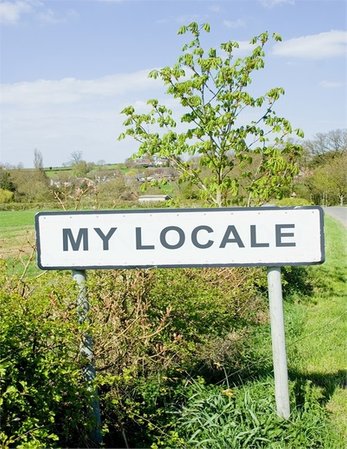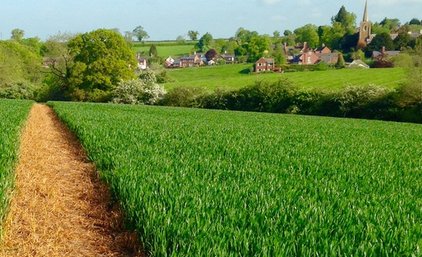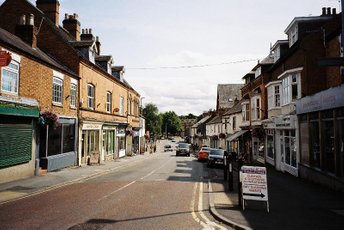YourLocale
We are passionate about neighbourhoods and helping communities shape the areas in which they live.
WHAT IS NEIGHBOURHOOD PLANNING?
Neighbourhood Planning is a transfer of planning powers from local planning authorities to the neighbourhood level. It is an opportunity for local communities to write planning policies that will be used to determine planning applications in the parish. It isn’t a blank sheet of paper however.
The policies will add local detail but have to be in general conformity with strategic planning policies. They must be backed by evidence to demonstrate why they are needed.
HOW MUCH DOES IT COST?
This will depend on the scope of the neighbourhood plan and the capacity of the group to engage in the process. The average cost of producing a neighbourhood plan is about £14,000 and much if not all of this is covered by grant funding. An organisation called Locality is the government’s agency for supporting neighbourhood plans and their website is a useful source of information and resources. Other funding sources are available to help cover the cost of producing a neighbourhood plan.
WHO CAN DO IT?
Ordinarily, Parish and Town Councils are the appropriate bodies for taking neighbourhood plans forward. In areas where there is no Parish Council, Neighbourhood Forums can be established where 25 or more people come together and declare a commitment.
WHO ARE YOURLOCALE?
YourLocale is a neighbourhood plan consultancy based in Leicestershire. We pride ourselves on providing a localised and personal service and for this reason we concentrate on a 20-mile radius from our base in Market Harborough in south Leicestershire.
The Managing Director is Gary Kirk, a Neighbourhood Plan Examiner who is also a Parish Councillor. There are also a wide range of Associates who specialise in issues such as the environment, housing, transport, data collection and statistical analysis. The Company has been in existence since 2013 and is working with over 40 Parish Councils, Town Councils and Neighbourhood Forums in and around Leicestershire. Into 2018, 9 neighbourhood plans supported by YourLocale had passed examination and many others had been submitted.
WHY DO IT?
Having a neighbourhood plan affords additional protection against, often unwanted, speculative development and helps to protect locally important buildings and open spaces.
It can add a local aspect to everything that requires planning permission, and helps make sure that planning applications are determined according to locally important criteria rather than district-wide priorities. It also provides an opportunity to look at infrastructure requirements locally. The process undertaken can enhance local democracy and give communities a ‘seat at the table’ when important development projects are being considered.
WHAT DOES IT INVOLVE?
There are very few prescribed stages in the production of a neighbourhood plan. It is important that all those with an interest in the parish are consulted fully and regularly about the progress of the neighbourhood plan and given opportunities to contribute. It can take around two years or more to conclude.
It starts with the body producing the neighbourhood plan becoming a Qualifying Body and the area covered by the neighbourhood plan being designated for this purpose.
Community consultation and evidence gathering can take the form of open events, questionnaires, data collection and analysis and review of strategic material from District and County Councils, as well as other bodies. Once the neighbourhood plan is in draft form it needs to be sent out for a six-week presubmission consultation prior to formal approval and submission to the local planning authority, who will also organise a six-week consultation before passing the neighbourhood plan and all comments received to an independent examiner who will test it for conformity with local, national and EU policies. Once the examiner has reported and made recommendations, the plan will be subject to a referendum of all on the electoral register locally.
The final stage after passing referendum is for the local planning authority to formally ‘Make’ the Plan. At this point it will sit alongside the local plan and carry equal weight in the determination of planning applications locally.
WHAT CAN YOURLOCALE DO?
We can offer a package tailored to the individual needs of the neighbourhood.
This can range from an advisory service for those groups who are confident about proceeding with limited guidance through to a comprehensive service where we sit alongside the neighbourhood plan group to plan and deliver each stage of the process.
Fully worked up packages of support can be made available on request.
Support includes:
Project planning
Funding bids
Questionnaires
Open events
Young Person liaison
Residential Site Assessments
Policy development
Plan and policy writing
Evidence gathering
Liaison with local planning authority
Statistical analysis
Reviews of Made Neighbourhood Plans
Range of specialist Associates available
READ OR PRINT OUR LATEST NEWSLETTER BELOW
Neighbourhood Plans:
Processes and Guides
Please click on the documents below to view various guides, processes and information on roles which will offer a wealth of information...
GETTING STARTED
GENERAL PROCESS
OPEN EVENT ARRANGEMENTS
ROLE OF CLERK
THEME GROUP ROLE
YOURLOCALE CONTRACT
TEMPLATE: MEETING AGENDA
SUPPORTING INFO REQUIREMENTS
ANY QUESTIONS ?
Neighbourhood Plans - Questions and Answers
Q: Why change the system?
A: Some people and communities find the planning system very complex, bureaucratic and confusing. It is not always easy to see why some developments are approved and others are refused and although many people that are directly affected by planning applications are able to formally submit comments, it is not always clear what influence these comments have on the final decision.
The new system aims to greatly simplify planning processes and give greater power to decide what happens in the local community itself.
Q: How will you help us to decide if a Neighbourhood Plan is right for us?
A: We will talk to you about the available options including if a Neighbourhood Plan is a good idea for your community. If you decide to proceed we can assist in every stage of the process including applying for funding to commence the process.
You may be very happy with the Council’s planning policies and feel that they reflect the views of the neighbourhood. You may be content that your area has sufficient representation for you to be able to influence what happens locally.
However, most Local Plans and Core Strategies only give a very broad brush approach to what will happen at a local level, and you may feel that you want to have a greater say about how the Council’s strategies are translated where you live.
Q: What sort of things can the Neighbourhood Plan contain?
A: The Neighbourhood Plan must be planning related and must support the need for the same amount of development (or more) as is contained in the local plan. It cannot be used to prevent development, although it can determine where that development takes place, what sort of development it is and what it looks like. It can also be used to shape business development, protect important local open spaces and facilities such as community centres.
Q: How will you help us to get funding for our Neighbourhood Plan?
A: Once you have decided that you want to develop a Neighbourhood Plan, we will go through a fully costed indicative programme with you and use this as the basis of a submission for you to send to funding sources. we will work alongside yourselves to prepare appropriate applications. We have helped secure over 100 grants for community groups and are confident of success.
Q: What are the stages of the process?
A: Neighbourhood Plans are still relatively new and there are few prescribed stages. It very much depends on what it is likely to include and the make-up of the Parish, although there are some stages that are essential requirements (i.e. consultation, the independent examination and the referendum).
Having said this, there are a number of aspects that we think need to be covered to give the plan the best chance of passing the Independent Examination stage.
These include:
1.Starting up – Identifying if it is good idea for the area and if so what should it focus on
2.Getting started - which body will submit the plan; what geographical area will it cover; setting up a steering group; who to include in it; review of existing policies; programme preparation.
3.Identifying the key issues – Consultation on what’s good and bad about the area and what is needed in the future.
4.Creation of vision and objectives – description of broad aspirations and specific objectives.
5.Evidence gathering – demonstrate the robustness of the emerging policies. Drilling down into the detail of what the neighbourhood plan will include.
6.Preparation of draft plan – pull the above strands together and submit for pre-submission consultation after approval from the Parish Council.
7.Submission – submit to the Local Planning Authority having amended the neighbourhood plan in line with consultation comments.
8.Independent Examination – The Local Planning Authority will arrange for an Independent Examination and appoint an examiner with the agreement of your group.
9.Referendum and ‘Making’ the neighbourhood plan – the plan will then be submitted
Q: How long is the process likely to take?
A: It is estimated that the whole process can take between 18 months and two years from start to finish – depending on the size of the Parish and the complexity of the plan.
Q: How much will it cost?
A: This will vary. The costs are likely to vary considerably depending on factors such as the nature and size of the area concerned (ones for small rural settlements tends to be quicker and easier to produce than for a larger urban community); number and the skills of local people who are willing to volunteer their time and skills in its development; amount of support the principal authority is able and willing to provide; amount of new information that is required to be developed and scope of the plan. Government figures indicate that the average cost to the community of producing a neighbourhood plan is around £15,000.
Q: Is there Government and other funding to help prepare the plan ?
Yes there is Government support available which is managed by a organisation called 'Locality'. There are potentially other sources of funding as well such as The Big Lottery Fund’s ‘Awards for All’ programme.
Q: Will the funding cover the whole cost of the Neighbourhood Plan?
A: In many cases yes. The funding is designed to take the preparation of the plan up to the stage of formal consultation and submission. Thereafter, the Local Planning Authority has the duty to meet the costs of the Independent Examination and the Referendum.
Q: Will the neighbourhood Plan replace our existing Parish Plan ?
No unless you wish it to do. If you have a Parish Plan it will provide a strong foundation on which to develop a Neighbourhood Plan but is not essential to doing one. Parish Plans are useful but are not a ‘planning tool’ unlike a neighbourhood plan and have no statutory basis.
Q: Will you liaise with the Local Planning Authority for/with us?
A: Yes – we will do this (if you wish) as part of the process of policy review and make sure that they are involved at every stage of the process so that there are no surprises at the end!
Q: If Yourlocale were to help us, how much work would we, the Parishioners, have to do?
A: This would be your Neighbourhood Plan and you would have to take responsibility for it. Clearly, capacity levels vary enormously within Parish Councils and Neighbourhood Groups, so we would establish with you from the outset what you could do and what we would need to help you with.
Q: What is the role of the Independent Examiner?
A: The Independent Examiner is only there to confirm that the plan meets a number of basic requirements. These include compliance with national planning policy; conformity with local strategic policy; compatibility with EU law and that the plan contributes to sustainable development. The Examiner will check that the group is legitimate and that the area covered is appropriate. Once the Examiner is satisfied on all these counts, agfter clarifying matters with the Qualifying Body where appropriate,the plan will pass through to the referendum stage, where a simple majority of those voting will lead to the plan being formally adopted (‘Made’) by the local authority.
The Community Right to Bid - Questions and Answers
Q. What is the Community Right to Bid?
A: One of the new Community Rights contained in the Localism Act, it gives parish councils and other community groups the chance to bid for and takeover the running of land or buildings that are of value to the local community.
Q. How does it work?
A: Town and parish councils and other community groups can nominate an important local land or building as an ‘asset of community value’.
Should the owner of the listed land or building then wish to sell the ‘asset’ they must first tell the local district or unitary council. If a parish council or community group then wishes to buy the asset they then have up to six months to develop a proposal to do this. During this period, the owner of the asset cannot sell it.
At the end of the period, the owner is under no obligation to sell it to the nominating group and can sell it to anyone. Similarly, the nominating groups are under no obligation to bid for the asset at the end of the six month period.
Q. What types of assets can be nominated?
A: The key test is that the asset is of ‘community value’. This is defined as follows:
•The principle use of the asset currently, or in the recent past furthers the social wellbeing or cultural, recreational or sporting interests of the local community and
This use will continue to further the social wellbeing or interests of the local community.
The asset can be land or a building, in public or private ownership.
Parks, allotments, leisure centres, pubs, village shops, closed schools and sporting (including football) stadiums are all good examples of assets that have been listed.
There are however some excluded categories e.g. residential properties but these are limited.
Q. Who can nominate an asset?
A: There are only certain groups that are eligible to nominate an asset of community value. These include parish councils and some voluntary and community groups. The nominating body will need to show a local connection to the asset being nominated.
In principle a parish council could nominate an asset outside of its own area.
Q. How do you nominate an asset as of community value?
A: Nominations must be made to the local district or unitary council. Some have standard application forms that need to be completed.
You should include information about the nominating group, the asset and why it should be listed.
Normally it is free to make a nomination but any parish council or other voluntary group considering nominating an asset should first check this with the relevant local council.
Q. Can the council decide not to list the asset?
A: Yes but unlikely if it can be proved that it is of community value. Should the district or unitary council decide not to list it, it would need to publish the reasons why. The nominating body also has the right of appeal to the Government.
Q. What happens if the owner is not happy that their asset is to be listed?
A: The owner can ask that their asset is not listed. They would need to have a strong case to prove this.
They may also be able to claim compensation from the local district or unitary council if they can prove by listing the asset its value has significantly decreased.
Q. Are there grants available to help with the process ?
A: There may be some Government and other funding available to parish councils and community groups to support them should a listed asset come up for sale – such as for feasibility studies and preparing a bid.
IMPORTANT LINKS
Here is a list of some links that may be of interest, and can provide more information on all of the above processess.
National Planning Policy Framework
Neighbourhood Plan Regulations
General guidance on neighbourhood planning



